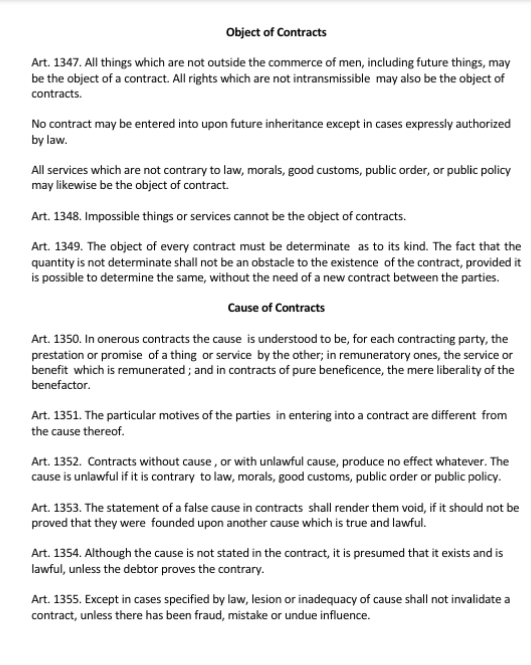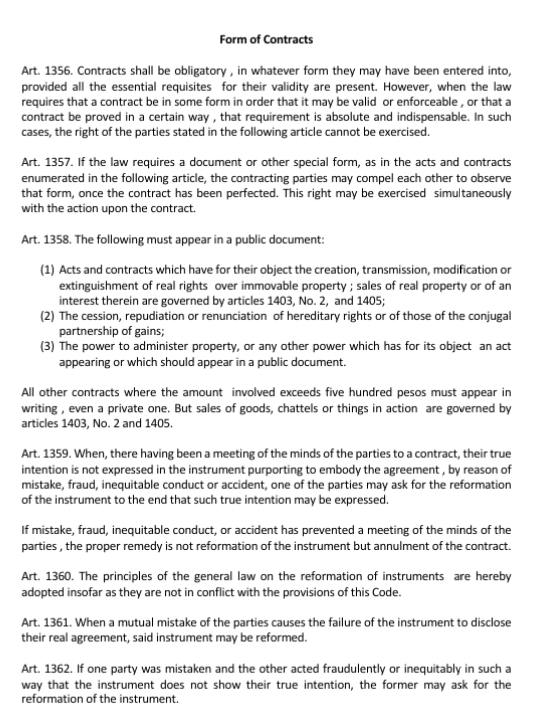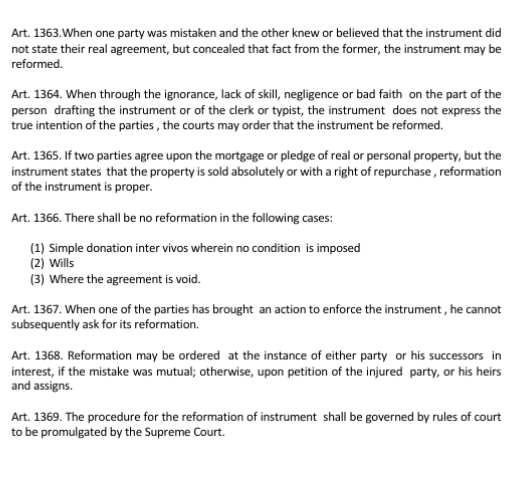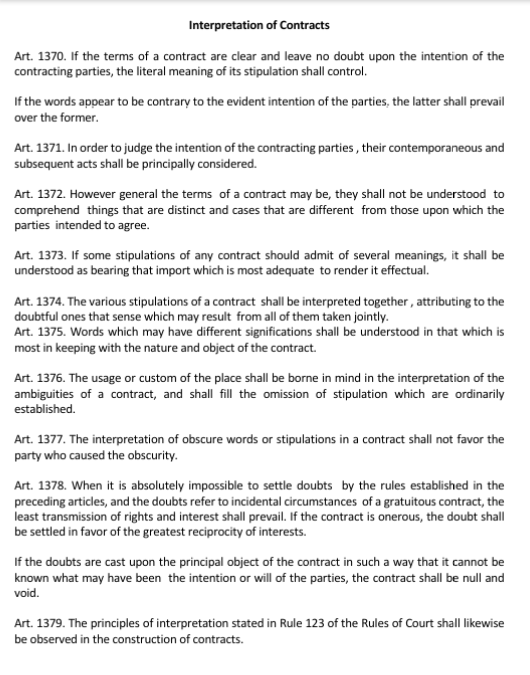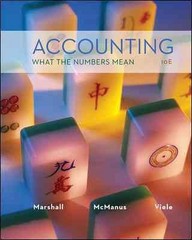Reflection Paper for this please. Explain everything in paragraph form
Object of Contracts Art. 1347. All things which are not outside the commerce of men, including future things, may be the object of a contract. All rights which are not intransmissible may also be the object of contracts. No contract may be entered into upon future inheritance except in cases expressly authorized by law. All services which are not contrary to law, morals, good customs, public order, or public policy may likewise be the object of contract. Art. 1348. Impossible things or services cannot be the object of contracts. Art. 1349. The object of every contract must be determinate as to its kind. The fact that the quantity is not determinate shall not be an obstacle to the existence of the contract, provided it is possible to determine the same, without the need of a new contract between the parties. Cause of Contracts Art. 1350. In onerous contracts the cause is understood to be, for each contracting party, the prestation or promise of a thing or service by the other; in remuneratory ones, the service or benefit which is remunerated ; and in contracts of pure beneficence, the mere liberality of the benefactor. Art. 1351. The particular motives of the parties in entering into a contract are different from the cause thereof. Art. 1352. Contracts without cause , or with unlawful cause, produce no effect whatever. The cause is unlawful if it is contrary to law, morals, good customs, public order or public policy. Art. 1353. The statement of a false cause in contracts shall render them void, if it should not be proved that they were founded upon another cause which is true and lawful. Art. 1354. Although the cause is not stated in the contract, it is presumed that it exists and is lawful, unless the debtor proves the contrary. Art. 1355. Except in cases specified by law, lesion or inadequacy of cause shall not invalidate a contract, unless there has been fraud, mistake or undue influence.Form of Contracts Art. 1356. Contracts shall be obligatory , in whatever form they may have been entered into, provided all the essential requisites for their validity are present. However, when the law requires that a contract be in some form in order that it may be valid or enforceable, or that a contract be proved in a certain way , that requirement is absolute and indispensable. In such cases, the right of the parties stated in the following article cannot be exercised. Art. 1357. If the law requires a document or other special form, as in the acts and contracts enumerated in the following article, the contracting parties may compel each other to observe that form, once the contract has been perfected. This right may be exercised simultaneously with the action upon the contract. Art. 1358. The following must appear in a public document: (1) Acts and contracts which have for their object the creation, transmission, modification or extinguishment of real rights over immovable property ; sales of real property or of an interest therein are governed by articles 1403, No. 2, and 1405; (2) The cession, repudiation or renunciation of hereditary rights or of those of the conjugal partnership of gains; (3) The power to administer property, or any other power which has for its object an act appearing or which should appear in a public document. All other contracts where the amount involved exceeds five hundred pesos must appear in writing , even a private one. But sales of goods, chattels or things in action are governed by articles 1403, No. 2 and 1405. Art. 1359. When, there having been a meeting of the minds of the parties to a contract, their true intention is not expressed in the instrument purporting to embody the agreement , by reason of mistake, fraud, inequitable conduct or accident, one of the parties may ask for the reformation of the instrument to the end that such true intention may be expressed. If mistake, fraud, inequitable conduct, or accident has prevented a meeting of the minds of the parties , the proper remedy is not reformation of the instrument but annulment of the contract. Art. 1360. The principles of the general law on the reformation of instruments are hereby adopted insofar as they are not in conflict with the provisions of this Code. Art. 1361. When a mutual mistake of the parties causes the failure of the instrument to disclose their real agreement, said instrument may be reformed. Art. 1362. If one party was mistaken and the other acted fraudulently or inequitably in such a way that the instrument does not show their true intention, the former may ask for the reformation of the instrument.Art. 1363.When one party was mistaken and the other knew or believed that the instrument did not state their real agreement, but concealed that fact from the former, the instrument may be reformed Art. 1364. When through the ignorance, lack of skill, negligence or bad faith on the part of the person drafting the instrument or of the clerk or typist, the instrument does not express the true intention of the parties , the courts may order that the instrument be reformed. Art. 1365. If two parties agree upon the mortgage or pledge of real or personal property, but the instrument states that the property is sold absolutely or with a right of repurchase, reformation of the instrument is proper. Art. 1366. There shall be no reformation in the following cases: (1) Simple donation inter vivos wherein no condition is imposed (2) Wills (3) Where the agreement is void. Art. 1367. When one of the parties has brought an action to enforce the instrument, he cannot subsequently ask for its reformation. Art. 1368. Reformation may be ordered at the instance of either party or his successors in interest, if the mistake was mutual; otherwise, upon petition of the injured party, or his heirs and assigns. Art. 1369. The procedure for the reformation of instrument shall be governed by rules of court to be promulgated by the Supreme Court.Interpretation of Contracts Art. 1370. If the terms of a contract are clear and leave no doubt upon the intention of the contracting parties, the literal meaning of its stipulation shall control. If the words appear to be contrary to the evident intention of the parties, the latter shall prevail over the former. Art. 1371. In order to judge the intention of the contracting parties , their contemporaneous and subsequent acts shall be principally considered. Art. 1372. However general the terms of a contract may be, they shall not be understood to comprehend things that are distinct and cases that are different from those upon which the parties intended to agree. Art. 1373. If some stipulations of any contract should admit of several meanings, it shall be understood as bearing that import which is most adequate to render it effectual. Art. 1374. The various stipulations of a contract shall be interpreted together , attributing to the doubtful ones that sense which may result from all of them taken jointly. Art. 1375. Words which may have different significations shall be understood in that which is most in keeping with the nature and object of the contract. Art. 1376. The usage or custom of the place shall be borne in mind in the interpretation of the ambiguities of a contract, and shall fill the omission of stipulation which are ordinarily established. Art. 1377. The interpretation of obscure words or stipulations in a contract shall not favor the party who caused the obscurity. Art. 1378. When it is absolutely impossible to settle doubts by the rules established in the preceding articles, and the doubts refer to incidental circumstances of a gratuitous contract, the least transmission of rights and interest shall prevail. If the contract is onerous, the doubt shall be settled in favor of the greatest reciprocity of interests. If the doubts are cast upon the principal object of the contract in such a way that it cannot be known what may have been the intention or will of the parties, the contract shall be null and void. Art. 1379. The principles of interpretation stated in Rule 123 of the Rules of Court shall likewise be observed in the construction of contracts
